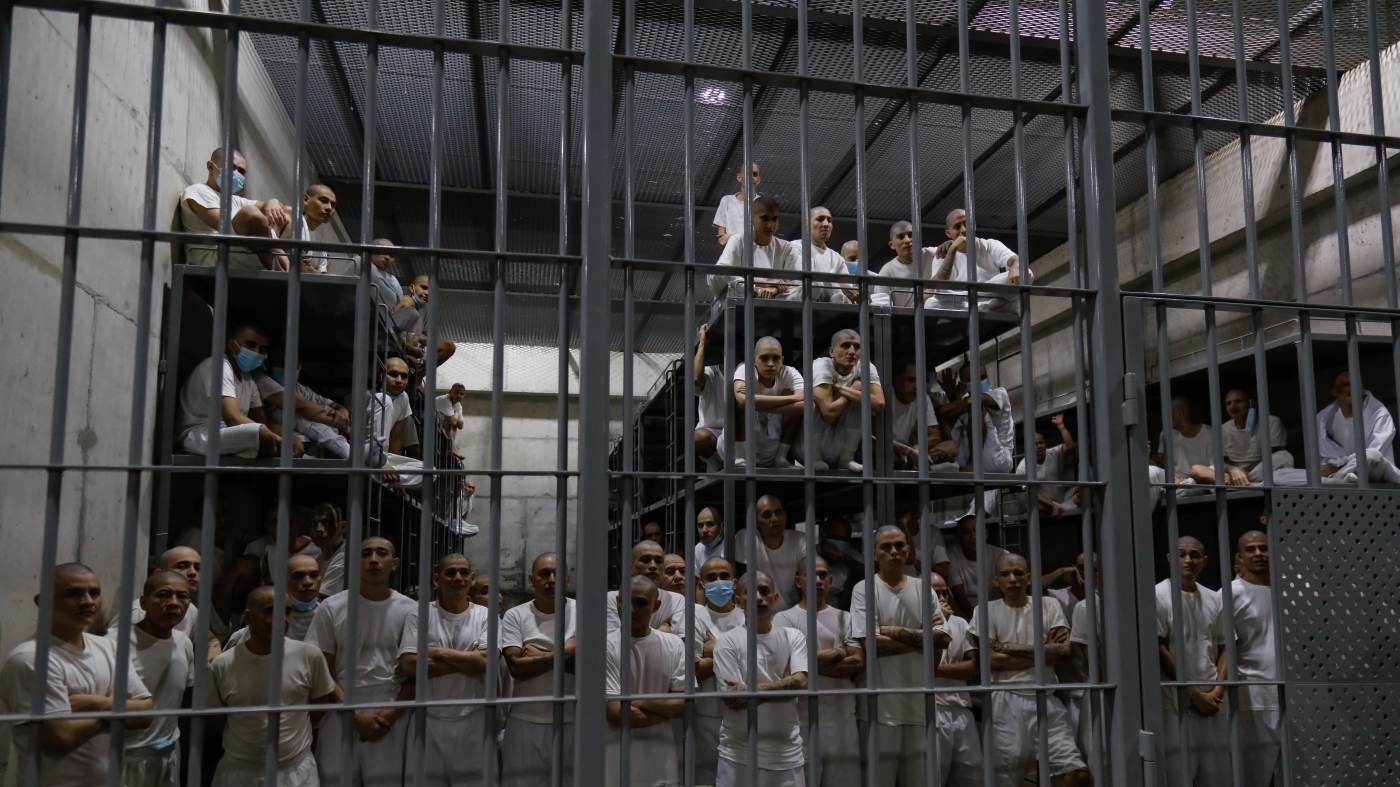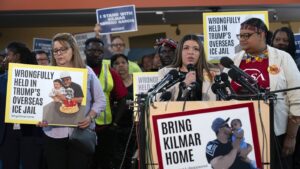Trump Administration’s Controversial Deportation Move Sends Alleged Gang Members to El Salvador
In a significant development, the Trump administration has deported over 200 individuals to El Salvador, including alleged members of the Tren de Aragua gang, originally from Venezuela. This move, announced over the weekend, has sparked debate as it took place amidst legal challenges. It remains unclear if the deportation occurred before or after a federal judge’s order to halt such actions.
These deportations also involve 23 people purportedly linked to the notorious MS-13 gang, a criminal organization with deep roots in El Salvador. High-profile figures such as Secretary of State Marco Rubio and El Salvador’s President Nayib Bukele have confirmed the deportations through social media posts. For more details, refer to this link.
The deportations followed President Trump’s invocation of the Alien Enemies Act of 1798, a historical law granting the president authority to deport or detain nationals of enemy nations during wartime. This marks the first use of the act since World War II. White House press secretary Karoline Leavitt stated, “Thanks to the great work of the Department of State, these heinous monsters were extracted and removed to El Salvador where they will no longer be able to pose any threat to the American People.”
The timing of the deportations has raised questions, given the recent emergency order from a federal judge in Washington, D.C., which sought to stop the use of wartime powers for deportation. El Salvador’s President Bukele reacted to the news of the judicial order with a post stating, “Ooopsie… too late,” hinting at the complex legal landscape surrounding these actions.
President Trump’s proclamation allows for an expedited removal process, bypassing usual immigration proceedings and asylum claims. This has led to concerns among advocates who worry it might set a precedent for targeting and deporting individuals irrespective of their legal status or criminal history.
El Salvador’s Role in the Deportations
El Salvador has agreed to house the deportees, including the 238 alleged members of Tren de Aragua, at CECOT, the Terrorism Confinement Center, for a year. Secretary of State Rubio expressed gratitude to President Bukele, acknowledging the arrangement as beneficial for both nations. The U.S. reportedly paid a “very low fee” to El Salvador for accepting these deportees.
A recent lawsuit by the American Civil Liberties Union and Democracy Forward aimed to temporarily block the deportations of five Venezuelan men, with the request later extended to all affected individuals. Judge James Boasberg initially granted the request, and further hearings are scheduled. The Trump administration has appealed the rulings to the U.S. Court of Appeals for the District of Columbia Circuit.
As the legal battle continues, the administration’s actions have drawn both domestic and international scrutiny, underscoring the contentious nature of immigration policy and enforcement. For more information on the legal implications, visit the White House’s official statement.
—NPR’s Danielle Kurtzleben contributed to this story.






